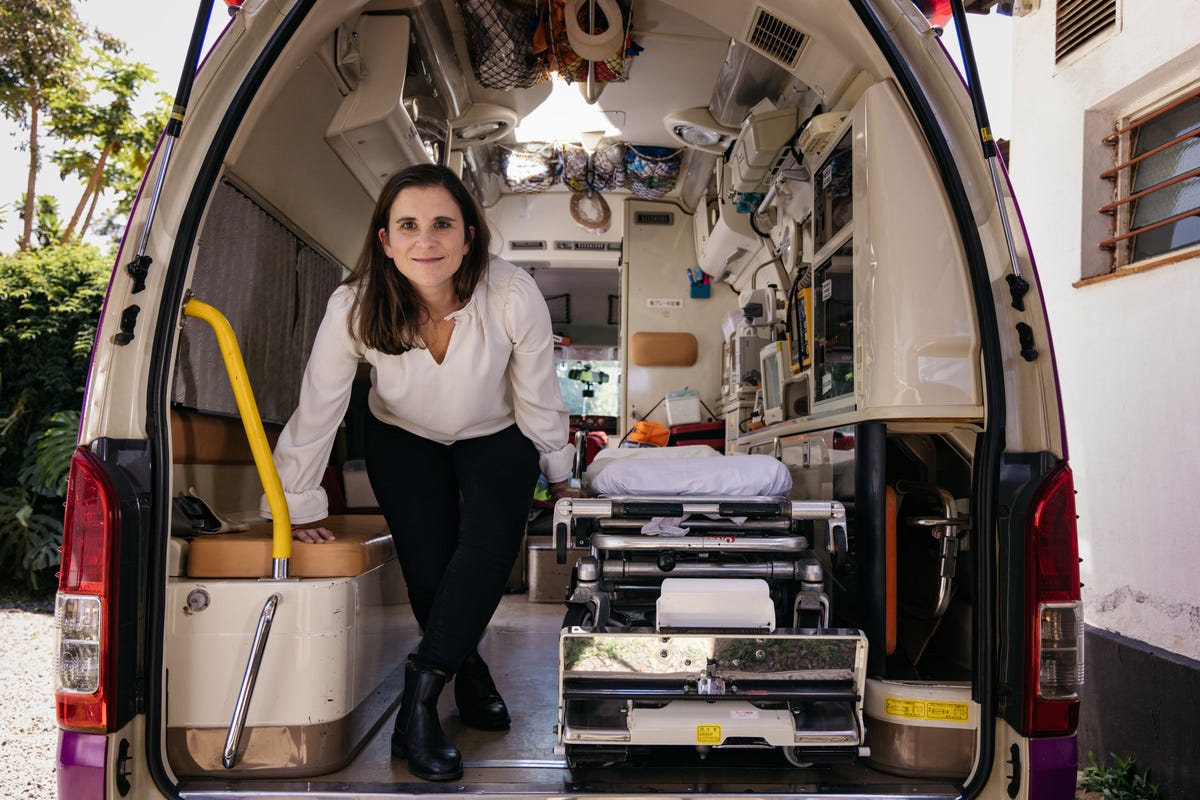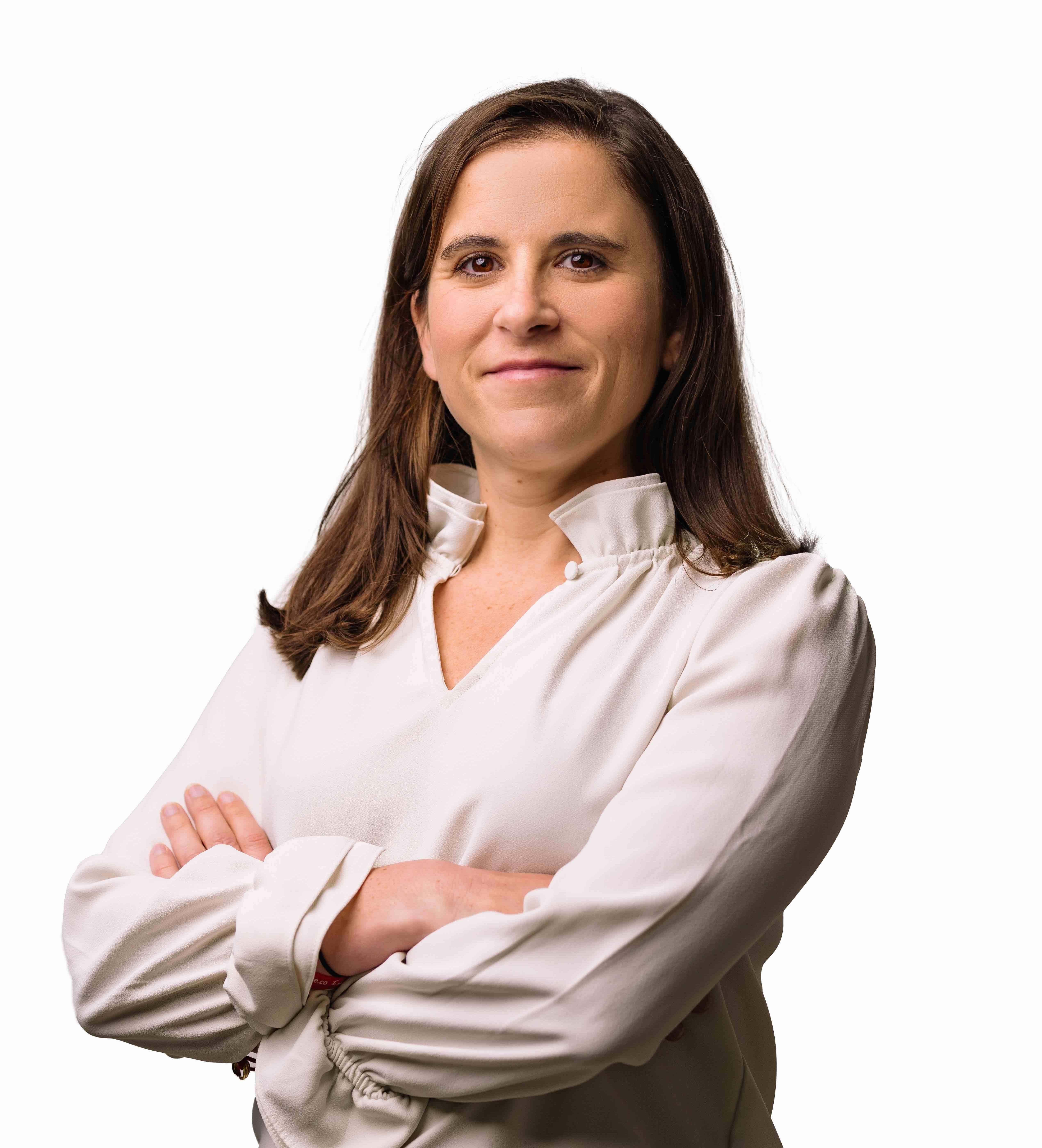CAITLIN DOLKART
CLOSING THE SURVIVAL GAP
How Flare’s emergency medical response service saves lives by saving time.
This series of articles showcases our 2025 Impact Awardees. The Impact Awards are dedicated to former Cartier Women's Initiative Fellows who have achieved extraordinary impact. Each of these nine exceptional women impact entrepreneurs has an inspiring story to tell about her journey to success.
This is the story of Caitlin Dolkart, a 2019 fellow and 2025 Impact Awardee.
For Caitlin Dolkart of emergency response service Flare, there was nothing quite as gratifying as seeing her Nairobi office full of babies who had survived because of accessing urgent emergency services during a special open day for former patients.
As Caitlin points out, the lives of those infants, fat-cheeked and gurgling contentedly in proud parents’ arms, were by no means guaranteed, especially if their mothers had experienced labor complications requiring urgent medical attention.
“The WHO estimates that approximately 50% of emergency-related mortality and morbidity could be avoided in low-income countries if ambulance response times were faster,” she explains. “Yet 95% of Africa lives without an effective emergency service.”

The golden hour of care
Before Flare’s launch in Kenya in 2017, East Africans in need of urgent transport to the hospital were forced to call multiple (up to hundreds) of numbers to access under-equipped local providers to find an available ambulance. With average response times clocking in at three hours, this pushed patients well outside the first “golden hour of care” which can be the difference between life and death.
Caitlin, who had previously worked for the Clinton Health Access Initiative across East & West Africa, knew there had to be a way to close that urgent time gap. “It’s not like developing a new vaccine,” she says. “We have the tools and technology. It’s about how you assemble it. How do you champion it? How do you push it forward?”
Dubbed the “Uber for ambulances” by the African start-up ecosystem, Flare uses that technology to connect patients throughout East Africa to life-saving services through its subscription-based emergency-response product Rescue.co. Using real-time tracking, Flare gives emergency response teams all the information they need to mobilize first responders, vehicles, equipment and resources rapidly and effectively. The Rescue.co dispatch center operates 24/7, leveraging the technology to instantly and automatically dispatch emergency providers, and coordinate end-to-end care.
“Our vision is that no matter who you are and no matter where you are, we will get you timely care. Whether you’ve had a road traffic accident in downtown Nairobi, or you’re a farmer in a rural area hours from the nearest hospital, we can get you life-saving services.”
Saving lives by saving time
By centralizing ambulance dispatch via a single phone number and app, Flare has dramatically reduced time-to-scene response times and improved patient outcomes. As of 2024, the business has more than two million members and has completed over 40,000 life-saving rescues and transfers. Crucially, it has brought the average response time for emergency services across Kenya down by 97% to only 16 minutes. With every minute saved, the chance of patient survival increased by 8%, and this reduction has saved countless lives.
Caitlin is keen to point out, though, that the real impact of a fast and efficient emergency service reaches beyond each individual life saved. In Kenya, which has a young population (average age 21), many lives saved are those of people in the prime of their lives – lives upon which others’ lives depend.
“If a mother loses her life in labor, which is a not uncommon situation in many parts of the world, including in Kenya, that directly impacts not only her but her existing children, her husband and her community for years and decades to come.”
Saving livelihoods
Moreover, with the innovative and low-cost Rescue.co subscription product, the company gives first-time access to many who previously could not afford an ambulance. It also covers big corporations, insurance companies, and tourists, which helps ensure the product is as affordable as possible to those in need.
“So much of healthcare is out of pocket or private,” Caitlin says. “So if you can't afford an emergency situation, that can push you further into poverty.”
Since joining the Cartier Women’s Initiative, Flare has expanded across East Africa to provide its services in Tanzania and Uganda, making it operational in three countries.
Caitlin’s vision for the next five years? To reach 10 million patients across five countries, saving 100,000 lives. “There’s just so much more to do!” she concludes. “Every year, when I reflect upon the business, it never feels like enough. It’s always like, okay, ‘what's next?’”
PHOTO GALLERY
Read More

Awards
2025 Impact Awards
Explore the 2025 edition of the Cartier Women's Initiative Impact Awards.

Community
Caitlin Dolkart
Find out more about Caitlin Dolkart, 2019 fellow, 2025 Impact Awardee, and co-founder of Flare.

Insights
Blog
Click here to discover the other 2025 Impact Awardees, or read community success stories.



